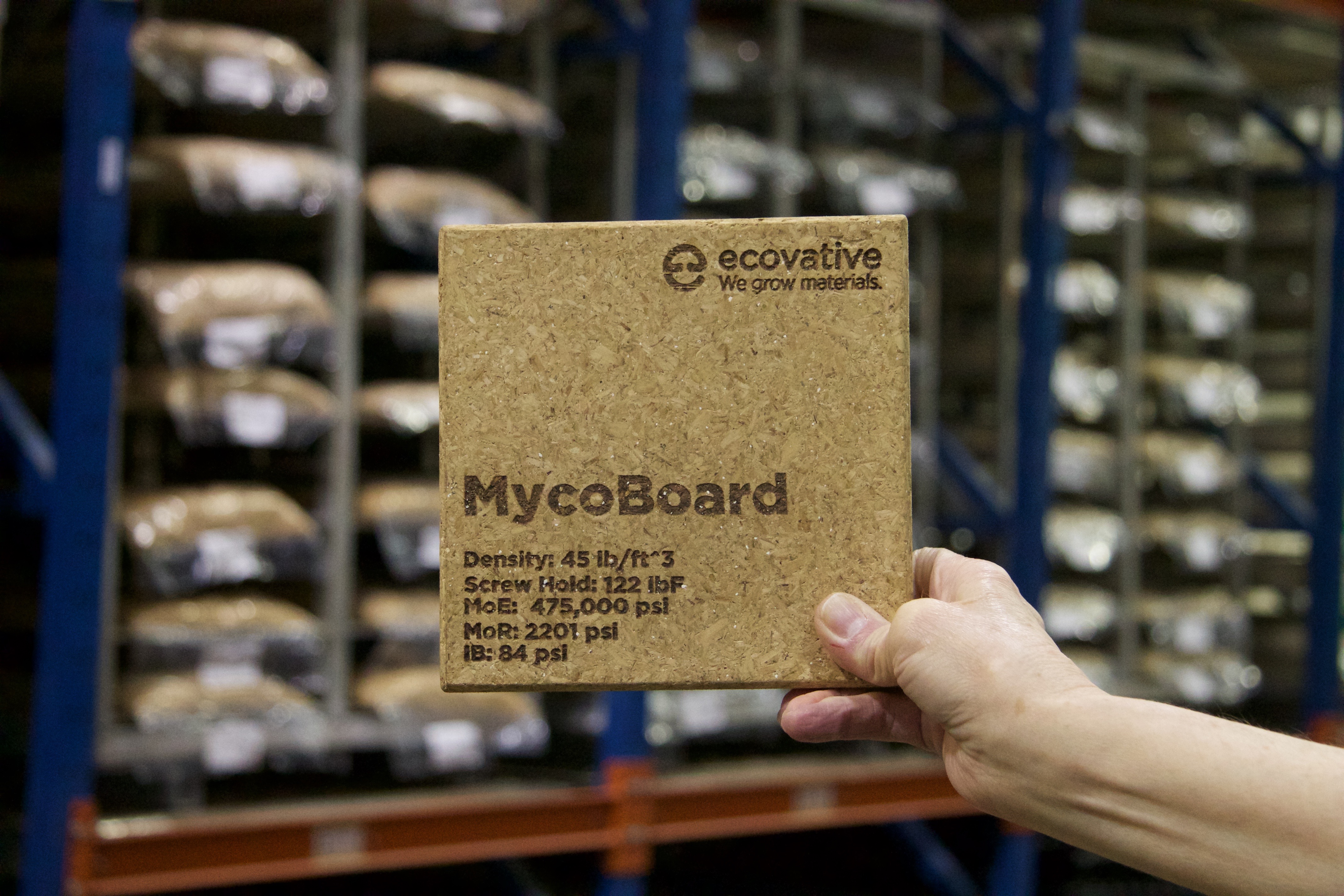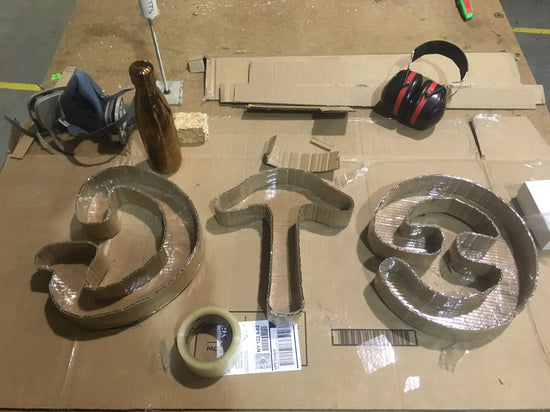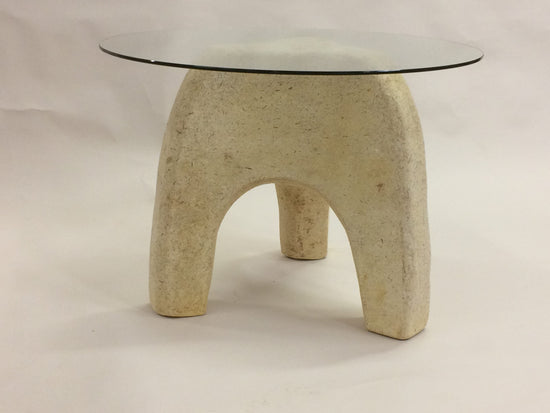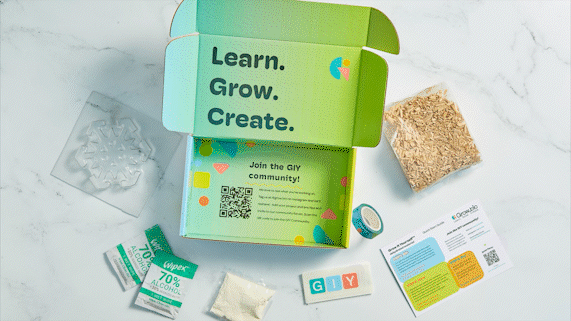Green Island, NY – The U.S. Environmental Protection Agency (EPA) Federal regulations to reduce public exposure to toxic formaldehyde emissions from engineered wood, announced today, cite Ecovative’s formula for biofabricating MycoBoard™ panels as an innovative alternative to the traditional manufacturing of particle board and other composite wood products.

MycoBoard™ panels are premium, customizable, and certified sustainable. Rather than being bound together using formaldehyde and other toxic resins, it is literally grown together using Ecovative’s mResin™ adhesive system. Derived from the mycelium in mushrooms, this “nature’s glue” is formaldehyde-free, safe, and healthy. This versatile, non-toxic engineered wood, which offers acoustic and fire-resistant properties, can be molded into custom shapes or pressed into boards, making it an ideal solution for the architectural and design community.
“We welcome the EPA’s new lower urea-formaldehyde emission standards and are thrilled to be referenced as a potential solution in the guidelines. At Ecovative we believe that less bad is not enough. That’s why we are scaling our mResin™ adhesive system for mill level deployments as well as designing, developing, and selling biofabricated furniture for the home and office. All are grown from natural materials without any added toxic glues,” said Eben Bayer, Ecovative co-founder and CEO.
“Today Ecovative is working with mills across North America and Europe to pilot our mResin™ adhesive system. By using a living organism to transform existing feedstocks, primarily wood fiber, into glue, we can help mills raise their product performance rather than just focusing on meeting these lower emission standards. While our pilot program is currently full, we hope to have capacity to work with other mills starting in 2017,” said Gavin McIntyre, Ecovative co-founder and Chief Scientist.
MycoBoard™ panels are now available directly from Ecovative, as well as through its west coast distribution partner Trinity Innovations. Ecovative is also using its innovative mycelium-based technology to produce a range of products for the home and office under its Ecovative Interiors line.
The EPA’s Formaldehyde Emission Standards for Composite Wood Products; Final Rule--Prepublication Copy includes the following reference to Ecovative (pg 46-47):
Overall, EPA has exercised its discretion in making its determination so as to fulfill the primary purpose of TSCA Title VI without impeding unduly or creating unnecessary economic barriers to technological innovation. See 15 U.S.C. 2601(b)(3). In fact, EPA encourages laminated product producers and the wood products industry to explore all avenues for reducing formaldehyde emissions from composite wood products. In addition to established resins, such as soy-based resins or phenol formaldehyde resins, new resin technologies may be developed that provide adequate performance while contributing minimal formaldehyde emissions. Similarly, while there are established alternatives to regulated composite wood products, e.g., lumber or solid wood, it is likely that new alternatives will be developed. For example, in 2014, EPA awarded a grant through EPA’s Small Business Innovation Research program competition to Ecovative Design, LLC. Ecovative makes packaging, building materials (furniture and panels) and automotive products by growing them from agricultural byproducts and mycelium, a fungal network of threadlike cells that are like the roots of mushrooms. These materials are not hardwood plywood, particleboard, or MDF, and thus are not subject to this final regulation. EPA encourages laminated product producers to consider all aspects of their production processes when deciding how best to lower formaldehyde emissions from laminated products and achieve compliance with this regulation.
Through the Federal Small Business Innovation Research (SBIR) program, Ecovative has received Federal research funding from the Environmental Protection Agency (EPA), the National Science Foundation (NSF), and the US Department of Agriculture. Ecovative was founded in 2007, and received its first SBIR program related grant in 2008. In 2013 Ecovative received the SBA’s prestigious Tibbetts Award honoring high-tech small businesses “for the critical role they play in research and development for the government and for their success in driving innovation and creating new jobs.”
The New York State Energy Research and Development Authority (NYSERDA) provided research support for Ecovative’s mResin™ technology, as well as for the development of its MycoFoam™ insulation and protective packaging as part of a program that supports inspired, innovative, and disruptive thinking about technologies and business models that will transform New York State’s energy landscape.
About Ecovative
Ecovative is a leading biomaterials company growing high performance, premium, award-winning products that are safe, healthy, and certified sustainable. Products include MycoBoard™ panels for furniture and construction, MycoFoam™ packaging materials, and other consumer goods in its biofabricated Ecovative Interiors line. Ecovative products enable customers—including Fortune 500 companies, international mills, and furniture makers—to meet their design, production, and delivery needs while achieving sustainability goals. Founded in 2007, the pioneer and world leader in mycelium-based biomaterials uses biology to grow materials with exceptional properties unattainable through conventional chemistry.




